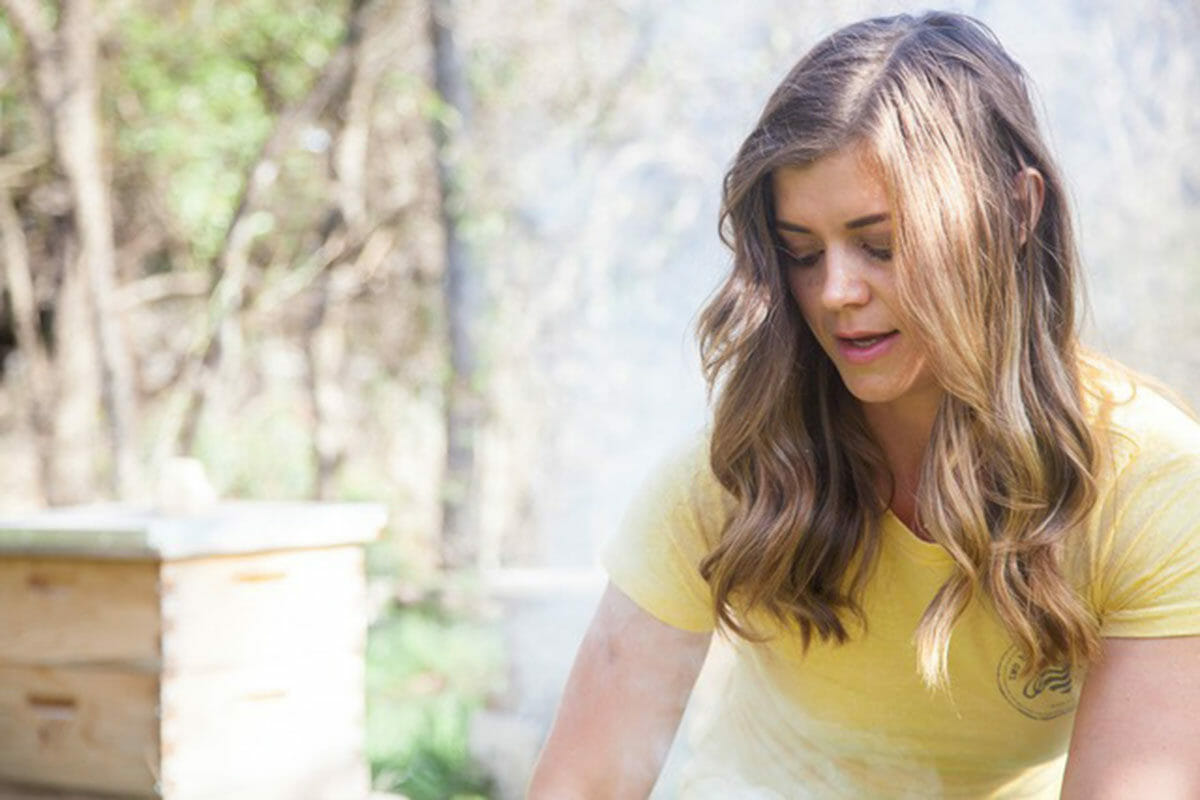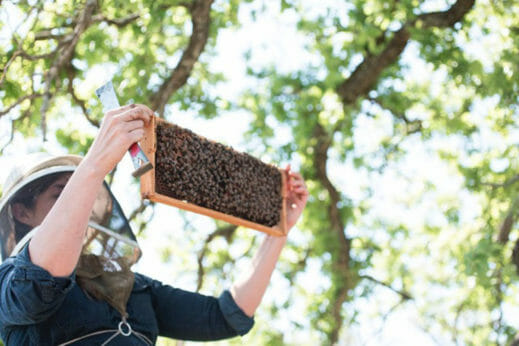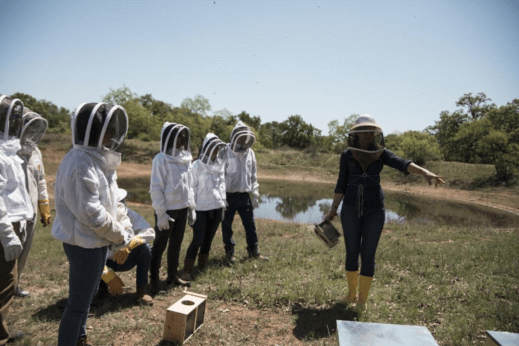Bring back the native bees
Unless you've been living in a cave, you've probably heard one or all of these refrains.
Bring back the native bees
Unless you've been living in a cave, you've probably heard one or all of these refrains.

Unless you’ve been living in a cave, you’ve probably heard one or all of these refrains.
Are bees critical? Absolutely.
A 2007 study examined agriculture data from 200 countries and found that fruit, vegetable, or seed production from 87 of the leading global food crops is dependent upon animal pollination – more than 75 percent.
When the scientists looked at global food production from these crops, they found that 35 percent of the world’s food production comes from crops that depend on pollinators.
Although more than three times as many crops worldwide require pollinators, the crops that are wind pollinated are mostly made up of crops that make up a large percentage of our diets worldwide – wheat, corn, sugarcane and rice are all wind pollinated. This is why you often hear the stat that one out of every three bites we take rely on pollinators. If your diet is high in fruits and vegetables instead of grains and sugars, the number for you is likely much higher.
What I am arguing for, however, is that we pay a lot more attention to our native pollinators, and not just honey bees.
However, when we hear the term “bees” our mind flashes right to honey bees. But there are thousands of species of bees that don’t produce honey.
Quick history of bees
Here’s a knowledge bomb for ya: honey bees are not native to the United States. Yup. At one time, no honey bees lived here. The only continents that honey bees can truly call home are Europe, Asia and Africa. Honey bees were brought to the United States by European settlers. However, 4,000 species of solitary (native) bees call the U.S. home. So why don’t we ever hear of these ‘native’ species?
First, native bees don’t produce honey, and as a somewhat self-serving society we therefore don’t pay them much attention. Native bees get no love, because they don’t produce a delectable sweet substance that we can stir into our tea, baked goods and yogurt.
Second, unlike honey bees, native bees cannot be loaded onto semi-trucks and driven from farm to farm to pollinate monoculture crops. Monoculture agriculture refers to a form of farming practice of growing a single crop in a field or farming system.
The opposite is referred to as polyculture agriculture, in which a farmer grows multiple crops in the same area, providing for a more biodiverse farming system. One of the problems with monoculture is that there not enough pollinators occurring naturally in a system to support pollination on that grand scale.
A great deal of our food production here in North America relies on monoculture farming, and as a result, those producers of monoculture fruits and vegetables that require animal pollination are reliant upon beekeepers that drive their bees to their farm at the right time to pollinate the flowers. These bees that are driven to farm to farm are honey bees.
Who pollinates what?
However, native solitary bees, such as mason bees and leafcutter bees, are in some ways better pollinators of our native plants than honey bees. For example, tomatoes require native bees for pollination, and others like squash and blueberries are better pollinated by native bees.
Also, many of our native plants and backyard plants are reliant upon one or more of these species of native bees. All of these species of bee are solitary, meaning they don’t live in colonies of many bees like honey bees, with one exception. The crowd favorite, the bumble bee, is a native species and lives in colonies of a few hundred bees. In comparison, honey bee colonies can grow to 50,000 bees or more.

Unfortunately, similar to honey bees, we have cause to worry about our native bee population. Native solitary bees have taken a huge hit because of loss of habitat, lack of dietary diversity and available food, and wide-spread pesticide use.


So, what can you do?
Thankfully, the ways to help native bees will also benefit honey bees! You can help by keeping a bee friendly yard. This includes not only planting bee-friendly plants, but also providing habitats for native bees, avoiding pesticides, and providing bees a water source. Most importantly, support your small, local and sustainable farmers and beekeepers whenever possible.
Tara Chapman is the founder and owner of Two Hives Honey in Austin, TX. Originally from Austin, TX, Tara spent 10 years working for the federal government on issues in Afghanistan and Pakistan. A chance beekeeping class inspired a career change, and she shocked her family and friends by quitting her
job to start a bee business with only 12 hours of beekeeping experience in 2016. Two Hives Honey sells locally and sustainably produced honey and provides education about bees and beekeeping.
Follow us
This work is licensed under a Creative Commons Attribution-NoDerivatives 4.0 International License.
Want to republish a Modern Farmer story?
We are happy for Modern Farmer stories to be shared, and encourage you to republish our articles for your audience. When doing so, we ask that you follow these guidelines:
Please credit us and our writers
For the author byline, please use “Author Name, Modern Farmer.” At the top of our stories, if on the web, please include this text and link: “This story was originally published by Modern Farmer.”
Please make sure to include a link back to either our home page or the article URL.
At the bottom of the story, please include the following text:
“Modern Farmer is a nonprofit initiative dedicated to raising awareness and catalyzing action at the intersection of food, agriculture, and society. Read more at <link>Modern Farmer</link>.”
Use our widget
We’d like to be able to track our stories, so we ask that if you republish our content, you do so using our widget (located on the left hand side of the article). The HTML code has a built-in tracker that tells us the data and domain where the story was published, as well as view counts.
Check the image requirements
It’s your responsibility to confirm you're licensed to republish images in our articles. Some images, such as those from commercial providers, don't allow their images to be republished without permission or payment. Copyright terms are generally listed in the image caption and attribution. You are welcome to omit our images or substitute with your own. Charts and interactive graphics follow the same rules.
Don’t change too much. Or, ask us first.
Articles must be republished in their entirety. It’s okay to change references to time (“today” to “yesterday”) or location (“Iowa City, IA” to “here”). But please keep everything else the same.
If you feel strongly that a more material edit needs to be made, get in touch with us at [email protected]. We’re happy to discuss it with the original author, but we must have prior approval for changes before publication.
Special cases
Extracts. You may run the first few lines or paragraphs of the article and then say: “Read the full article at Modern Farmer” with a link back to the original article.
Quotes. You may quote authors provided you include a link back to the article URL.
Translations. These require writer approval. To inquire about translation of a Modern Farmer article, contact us at [email protected]
Signed consent / copyright release forms. These are not required, provided you are following these guidelines.
Print. Articles can be republished in print under these same rules, with the exception that you do not need to include the links.
Tag us
When sharing the story on social media, please tag us using the following: - Twitter (@ModFarm) - Facebook (@ModernFarmerMedia) - Instagram (@modfarm)
Use our content respectfully
Modern Farmer is a nonprofit and as such we share our content for free and in good faith in order to reach new audiences. Respectfully,
No selling ads against our stories. It’s okay to put our stories on pages with ads.
Don’t republish our material wholesale, or automatically; you need to select stories to be republished individually.
You have no rights to sell, license, syndicate, or otherwise represent yourself as the authorized owner of our material to any third parties. This means that you cannot actively publish or submit our work for syndication to third party platforms or apps like Apple News or Google News. We understand that publishers cannot fully control when certain third parties automatically summarize or crawl content from publishers’ own sites.
Keep in touch
We want to hear from you if you love Modern Farmer content, have a collaboration idea, or anything else to share. As a nonprofit outlet, we work in service of our community and are always open to comments, feedback, and ideas. Contact us at [email protected].by General Mills, Modern Farmer
June 20, 2018
Modern Farmer Weekly
Solutions Hub
Innovations, ideas and inspiration. Actionable solutions for a resilient food system.
ExploreExplore other topics
Share With Us
We want to hear from Modern Farmer readers who have thoughtful commentary, actionable solutions, or helpful ideas to share.
SubmitNecessary cookies are absolutely essential for the website to function properly. This category only includes cookies that ensures basic functionalities and security features of the website. These cookies do not store any personal information.
Any cookies that may not be particularly necessary for the website to function and are used specifically to collect user personal data via analytics, ads, other embedded contents are termed as non-necessary cookies.
Hi
Thank you for the excellent article.